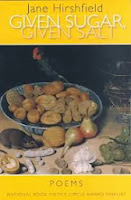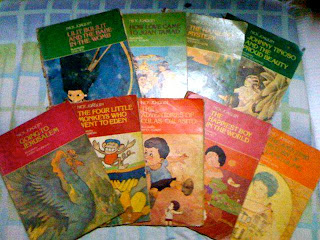 |
| Image of Guadalajara from famouswonders.com. |
The Instruction Manual
BY JOHN ASHBERY
As I sit looking out of a window of the building
I wish I did not have to write the instruction manual on the uses of a new metal.
I look down into the street and see people, each walking with an inner peace,
And envy them—they are so far away from me!
Not one of them has to worry about getting out this manual on schedule.
And, as my way is, I begin to dream, resting my elbows on the desk and leaning out of the window a little,
Of dim Guadalajara! City of rose-colored flowers!
City I wanted most to see, and most did not see, in Mexico!
But I fancy I see, under the press of having to write the instruction manual,
Your public square, city, with its elaborate little bandstand!
The band is playing Scheherazade by Rimsky-Korsakov.
Around stand the flower girls, handing out rose- and lemon-colored flowers,
Each attractive in her rose-and-blue striped dress (Oh! such shades of rose and blue),
And nearby is the little white booth where women in green serve you green and yellow fruit.
The couples are parading; everyone is in a holiday mood.
First, leading the parade, is a dapper fellow
Clothed in deep blue. On his head sits a white hat
And he wears a mustache, which has been trimmed for the occasion.
His dear one, his wife, is young and pretty; her shawl is rose, pink, and white.
Her slippers are patent leather, in the American fashion,
And she carries a fan, for she is modest, and does not want the crowd to see her face too often.
But everybody is so busy with his wife or loved one
I doubt they would notice the mustachioed man’s wife.
Here come the boys! They are skipping and throwing little things on the sidewalk
Which is made of gray tile. One of them, a little older, has a toothpick in his teeth.
He is silenter than the rest, and affects not to notice the pretty young girls in white.
But his friends notice them, and shout their jeers at the laughing girls.
Yet soon all this will cease, with the deepening of their years,
And love bring each to the parade grounds for another reason.
But I have lost sight of the young fellow with the toothpick.
Wait—there he is—on the other side of the bandstand,
Secluded from his friends, in earnest talk with a young girl
Of fourteen or fifteen. I try to hear what they are saying
But it seems they are just mumbling something—shy words of love, probably.
She is slightly taller than he, and looks quietly down into his sincere eyes.
She is wearing white. The breeze ruffles her long fine black hair against her olive cheek.
Obviously she is in love. The boy, the young boy with the toothpick, he is in love too;
His eyes show it. Turning from this couple,
I see there is an intermission in the concert.
The paraders are resting and sipping drinks through straws
(The drinks are dispensed from a large glass crock by a lady in dark blue),
And the musicians mingle among them, in their creamy white uniforms, and talk
About the weather, perhaps, or how their kids are doing at school.
Let us take this opportunity to tiptoe into one of the side streets.
Here you may see one of those white houses with green trim
That are so popular here. Look—I told you!
It is cool and dim inside, but the patio is sunny.
An old woman in gray sits there, fanning herself with a palm leaf fan.
She welcomes us to her patio, and offers us a cooling drink.
“My son is in Mexico City,” she says. “He would welcome you too
If he were here. But his job is with a bank there.
Look, here is a photograph of him.”
And a dark-skinned lad with pearly teeth grins out at us from the worn leather frame.
We thank her for her hospitality, for it is getting late
And we must catch a view of the city, before we leave, from a good high place.
That church tower will do—the faded pink one, there against the fierce blue of the sky. Slowly we enter.
The caretaker, an old man dressed in brown and gray, asks us how long we have been in the city, and how we like it here.
His daughter is scrubbing the steps—she nods to us as we pass into the tower.
Soon we have reached the top, and the whole network of the city extends before us.
There is the rich quarter, with its houses of pink and white, and its crumbling, leafy terraces.
There is the poorer quarter, its homes a deep blue.
There is the market, where men are selling hats and swatting flies
And there is the public library, painted several shades of pale green and beige.
Look! There is the square we just came from, with the promenaders.
There are fewer of them, now that the heat of the day has increased,
But the young boy and girl still lurk in the shadows of the bandstand.
And there is the home of the little old lady—
She is still sitting in the patio, fanning herself.
How limited, but how complete withal, has been our experience of Guadalajara!
We have seen young love, married love, and the love of an aged mother for her son.
We have heard the music, tasted the drinks, and looked at colored houses.
What more is there to do, except stay? And that we cannot do.
And as a last breeze freshens the top of the weathered old tower, I turn my
gaze
Back to the instruction manual which has made me dream of Guadalajara.
Information from PoetryFoundationg.org: John Ashbery, “The Instruction Manual” from Some Trees
. Copyright © 1956 by John Ashbery. Reprinted with the permission of Georges Borchardt, Inc. on behalf of the author.
Source: The Mooring of Starting Out: The First Five Books of Poetry (Ecco Press, 1997)
----------------------------------------------------------------------------------
I really appreciated the video discussion. While I knew that this was a daydream poem, because of the discussion I appreciated it as an instruction manual for poetry itself: "Write what you want and you don't even have to write from firsthand experience because you can write from imagination."
I like the idea of having capacity for imagination. A poet's occupation is to be free. How beautiful is that?
I was a bit worried about the dismissal of firsthand experience. It's important to me, as a writer, to gain insights from actual experience. There's nothing to write about if there is no
living. However, I do get the what Ashbery is saying about
living in context of the imagination. Imagination
is also firsthand experience. Without it we wouldn't have the great fantasy stories of Tolkien or any other great writer from whose imagination whole cities or worlds sprouted.
I also saw the poem as a metaphor for the economics of being a writer. The world has writers write instruction manuals. It is what gets the bills paid. Anyone with a facility for words has a "practical" job: teaching, technical writing, copywriting, news reporting, etc. It is a reminder to the writer that imagination needs to be cultivated. There is nothing really in between a writer and the subject matter that stimulates him or her but willpower.
I want to comment on the appropriation of Guadalajara as well. From as far as NY, isn't the imagined Guadalajara a jumble of opinions about Guadalajara? Isn't a Guadalajara of imagination a series of idealized pictures about a once-colonized city? Isn't it a catalog of impressions from a first world city about a
picturesque third world city, full of blooming flowers and bands that play in
fiestas? It's an escape, yes, into perhaps a cliche? That's just a question. I don't mean to detract from what the poem contributes. It's just worth questioning.
Anyway, I found this poem especially reassuring because I have been writing something and I was stopped by my lack of firsthand experience. Where there is no firsthand experience, there is the possibility of a well-wrought
imagined experience. I go back into womb-like sleep or ocean and swim with the words.
So here's to the anti-narrative, the alternative life, and the power of imagination.

























_cover.jpg)